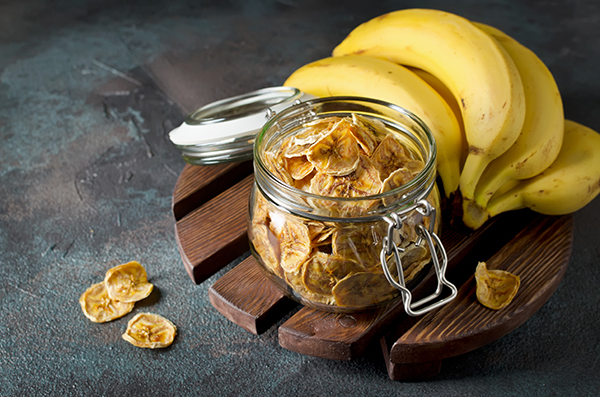Everything You Need to Know About Those “Expiration Dates” on Your Food
by Meadow Clark, The Organic Prepper:
 Have you ever wondered what the real expiration dates are for your pantry food? Have you ever wondered whether your food was safe to eat past the “expiration date?”
Have you ever wondered what the real expiration dates are for your pantry food? Have you ever wondered whether your food was safe to eat past the “expiration date?”
Fear not. There is no more need to throw away perfectly good food over a little date stamp.
The problem is – people are throwing canned or packaged goods away on a false perception that the date means expiration. In other words, they fear that the product could be spoiled or unsafe. More on that in a bit.
I visited someone once who was chucking nearly a hundred cans and boxes of food – right into the garbage, no joke. This person really believed that all the food had expired and was unsafe to eat. As though the food had already “gone off.”
I pleaded with the person that the food could go to someone hungry but they argued that a food bank would examine the dates and throw them away. If you see food banks throwing away expired cans – or even sealed packaged goods, please tell them that the USDA has recommended that people can still donate food that’s older than the stamped date. Even stores are allowed to sell food weeks and months beyond their “past” dates. (Source)
So, anyway, I did what anyone would do when they were assured that safe food is about to be senselessly wasted – I gathered all the food in big black Hefty bags and walked out of there like a reverse Santa Claus scenario.
We waste so much food.
Americans waste an average of $2,000 worth of food each year in some form or another. (Though I don’t think I’ve ever met anyone who wastes nearly $200 of food each month!) Another source says Americans waste one pound of food a day, and that it takes 30 million acres of cropland to produce that food. It’s not just average Americans who are involved with food waste, however.
Much of our country’s food is wasted before it ever reaches our dinner tables.
One of the ways food is wasted is right in the field. An estimated 20% of crops never make it off the field – they rot. You may have heard about “ugly produce.” That’s warped looking produce that never makes it to the grocery store even though it’s perfectly good to eat. Thankfully, there are finally grocery stores popping up devoted to selling the “ugly” produce so that it doesn’t go to waste.
Can you believe the UN is pushing for people to eat crickets and maggots when we have all this perfectly good food that simply gets wasted? True story.
The Stamped Dates on Foods Are Estimated Guesses for Freshness
Did you know that expiration dates are only required by the FDA for infant formula? The USDA assuresthat manufacturers are providing dating as a way to help consumers decide food freshness and quality – it has nothing to do with product safety. Nada. Zip.
Real expiration dates are rarely found on canned goods.
It is only consumer perception that continues to drive a fear of eating food after its “past” date.
The dates on canned goods are a suggestion for quality. After all, if there was no date on the can at all, it could be 100 years old by the time you eat it and you’d never know.
All of that food that you have stashed away in your prepper pantry will most likely be delicious for a long time after the date you find stamped on the container.
What do the following terms mean on your food?
Here’s a quick guide to the dates you see stamped on your food.
- Best if Used By/Best Before: An indication of best flavor and/quality. Again, this is not a safety date.
- Sell-By: This date is for the store. It tells the store how long to display the product for sale and it’s for inventory management. Still not a safety date.
- Use-By: This date is the last date recommended to use the product while at peak quality. Not a safety date except when it is used on infant formula.
- Guaranteed Fresh: Just a date for the consumer to know when they should use up the product.
In nearly every case, you can continue using food – especially canned food – significantly past the date on the product since it has nothing to do with actual expiration. Some states require that milk and other perishables be sold before the expiration date.
According to the Canned Food Alliance,
…canned food (when kept at relatively stable temperatures) will remain at peak quality for at least two years after it’s been processed. They note that while food in cans “retains its safety and nutritional value well beyond two years,” its color and texture may change after that time. Many factors affect how long a food will stay edible in the can, but food kept at “moderate temperatures [75 degrees or below]” may last indefinitely.
But others believe that canned food lasts much longer, perhaps only losing negligible amounts of nutrition over the years. After all, the idea of canned food in the first place is to be non-perishable.
“Canned foods do not expire on a certain date. One cannot say that the canned food is good on one day and not good the next day. Canned foods are under a vacuum. The absence of oxygen helps to extend the shelf life of canned foods.” -Ron Giles, Quality Assurance Director of Goya Foods, Inc.
The un-safest thing about canned goods whether they are before or after their best-by dates is the Bisphenol A (BPA) that is used to line that metal of the can as a barrier between the metal and food. Although the food industry claims BPA is for product safety, recent research is starting to show that BPA is a hormone disruptor that is linked to obesity.
Here Are Some Real Food “Expiration” Times
Remember, expiration typically means spoilage to people. But these dates only represent the best quality. The food and drink on this list may still be perfectly fine after the dates listed. However, this will let you know when to rotate the food in your pantry. This short list should serve as general “eat by” date.
The times listed represent the length of time you can wait to eat something, past the printed date on the product.
- Honey – Indefinite
- Beans, dried – Indefinite
- Peanut Butter – 1 year in pantry, if it’s natural then it only lasts 3 months in pantry and 6 months in fridge
- Raw eggs in shell – 3 to 5 weeks
- Coffee, ground – 3-5 months in pantry
- Coffee, whole bean – 6-9 months in pantry
- Coffee, any type, frozen – 1-3 years (whole bean lasts longer)
- Milk, frozen – 3 months
- Dairy Alternatives – 7 – 10 days after opening
- Bottled Juice – 7 – 10 days after opening, in pantry – 3-9 months
- Nut butters – 3 months (cashew) to 1 year (almond)
- Pasta Sauce – 1-2 years in pantry, 7-10 days in fridge, opened
- Cream sauces, commercially jarred – up to 12 months in pantry, 7-10 days opened in fridge
- Pasta, dry packaged – 1-2 years
- Olive oil – 2 years, still safe but taste and quality could be affected
- Olives, jar – 1-2 years in pantry, 3-4 months opened, in fridge
- Cookies – 4 – 6 months
- Beer – 6 months – 9 months in pantry. 6 months – 2 years in fridge.
- Homemade bread – 3 days on counter, best to store in freezer.
- Ice Cream – Up to 3 months, 4 months for sherbert
- High-Acid Canned Foods like tomatoes, canned juices, pickles etc – 12 – 18 months
- Canned Foods – 2 – 5 years or more
- Bottled water – the water itself doesn’t expire, but the bottle will break down within 2 years.
- Cheese – I’ve known people to store cheese in their fridge for months at a time. Our grandparents’ generation simply cut off any mold from the surface and continued eating the cheese. But it will sharpen with age, so maybe it’s a good idea to buy mild and let it age in your fridge.
General Rule – a lot of things last up to 2 years in a pantry, but liquids, sauces, and juices typically last only 7-10 days once they are opened and stored in a fridge. So saving that half-jar of pasta sauce for next month is not a good idea because you can’t see mold roots when they first begin.
#1 Tip – Create a meal plan to use up leftover portions to use in a different meal for that same week. That way, you never have to spend time wondering if it’s still safe to eat.
Obviously, if any cans are bloated, they need to be disposed of immediately since bloated cans are a distinctive sign of deadly botulism and other bacteria. Dents in cans may cause the barrier in the lining between the can and the food to break down, theoretically causing bacteria to grow. Try not to buy dented cans in the first place!
Never Throw Away Good Food Again
If you love the idea of frugally using up your foods – and doing it in style, then you’ll want to get acquainted with this site: Eat By Date
Look up by food or by shelf-life and check here before you chuck your food. It shows you how long the food will last beyond the printed date.
Read More @ TheOrganicPrepper.ca
Loading...


